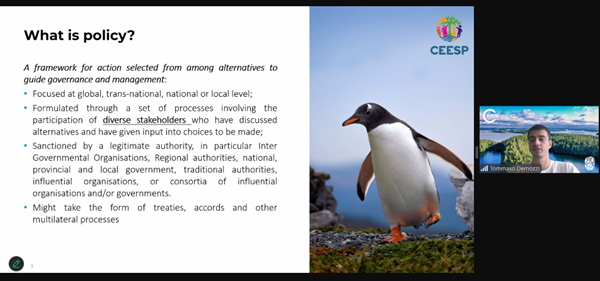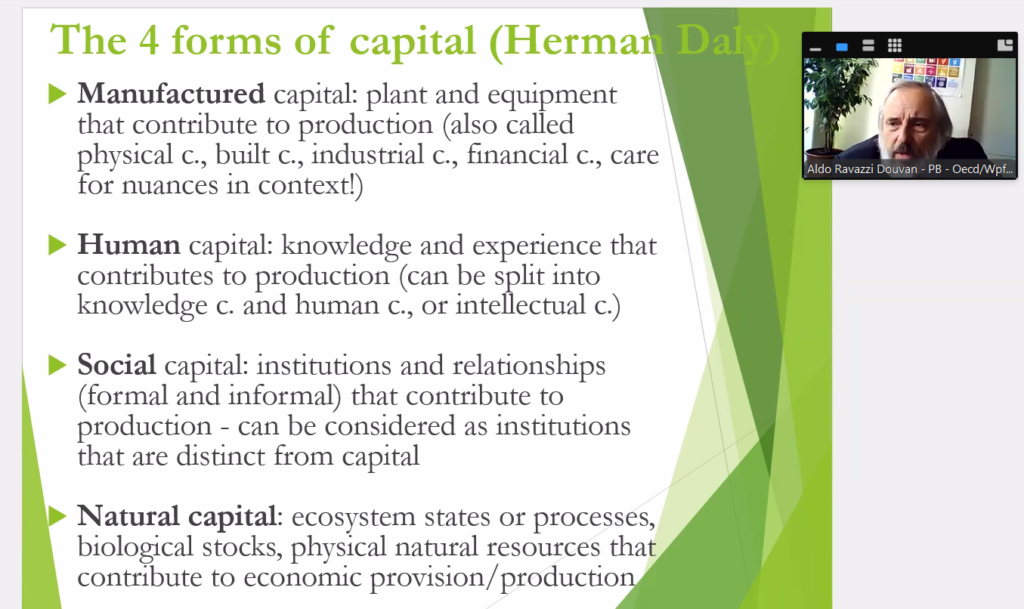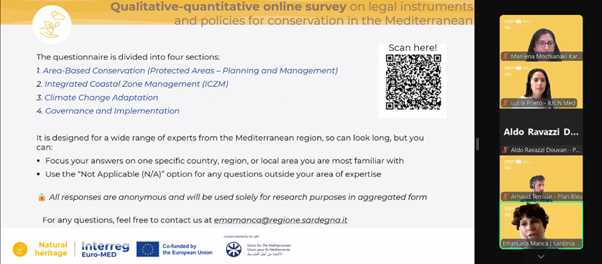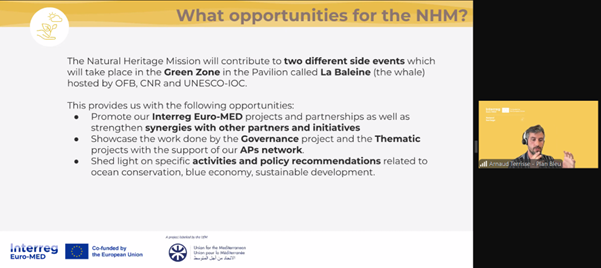Our Mission continues to foster collaboration and capacity building across the Mediterranean through its thematic Working Groups. On 22 May 2025, a dedicated webinar brought together almost 60 participants for a deep dive into the legal and policy instruments shaping natural heritage conservation in the region’s coastal zones.
Held as part of the Mission’s capacity-building efforts, the webinar addressed the challenges of translating complex legal frameworks into concrete conservation outcomes. It specifically aimed to support the four Working Groups of the Mission by enhancing their understanding of environmental governance mechanisms, while promoting transnational policy dialogue.
Rethinking Policy Engagement: Perspectives from IUCN and OECD
A keynote session featuring Tommaso Demozzi (IUCN Commission on Environmental, Economic and Social Policy) and Aldo Ravazzi (OECD-EPOC, IFCMA) offered participants a panoramic view of environmental policy development, with practical insights for influencing legal and political agendas.

Tommaso Demozzi’s intervention stressed that environmental governance must not rely solely on top-down processes. Instead, he advocated for a consultative and participatory approach to policymaking, where legitimacy stems not only from formal authorities but from a wide array of actors, such as local communities, civil society, Indigenous peoples, scientific institutions, and NGOs.
He explained that policy should be understood as a framework for action that is shaped by multiple stakeholders and legitimised through collective processes, not just political mandates. Demozzi highlighted the critical importance of aligning national policy windows with regional strategies, such as those under the Barcelona Convention.

Aldo Ravazzi, bringing his dual expertise as a policy advisor and economist, acknowledged the layered nature of biodiversity governance—from international conventions such as the Convention on Biological Diversity (CBD), to EU-level strategies, and finally to national implementation—and stressed that multi-level coherence remains a persistent challenge in the Mediterranean region.
He stressed that policy ambition must be matched by economic realism and integration, and advocated for environmental law to be accompanied by economic instruments that drive behaviour change. Ravazzi reminded participants that legal texts are not self-executing; without aligned budgets, economic incentives, and enforcement mechanisms, they risk becoming “aspirational statements” rather than operational tools.
Connecting Legal Instruments to Spatial Planning

Emanuela Manca, from the Autonomous Region of Sardinia, presented ongoing work being carried out under the Dialogue4Nature project to explore how legal and governance frameworks influence spatial planning and biodiversity management.
She introduced the study currently underway, which investigates how existing legislative instruments interact with local and regional spatial governance processes. By examining concrete planning cases, the study aims to identify both obstacles and enabling factors for embedding environmental priorities into territorial decision-making.
Manca encouraged webinar participants, particularly those active in planning, policymaking, or protected area management, to contribute their insights through an open survey. This consultation will feed directly into the study’s conclusions, helping ensure that its recommendations are grounded in the lived experiences of practitioners across the Mediterranean..
Mediterranean Coordination Ahead of the UN Ocean Conference
In a final segment, Plan Bleu outlined how the Mission’s community can strategically engage in the upcoming United Nations Ocean Conference (UNOC).

The session detailed two key pathways for involvement:
- Mission-Led Side Events: Two side events are in preparation under the Mission’s umbrella, offering a platform to showcase innovations driven by Thematic Projects and Associated Partners in the marine and coastal realm.
- Joint Messaging: The policy recommendations on marine restoration, co-developed by the Natural Heritage Mission and its Working Groups, will be presented at UNOC to contribute meaningfully to the global marine policy dialogue.
The Road Ahead
Looking ahead, the Mission for Natural Heritage will maintain momentum through two key events scheduled for the second half of 2025. First, an internal Mission meeting will take place in Athens in early July, offering a dedicated space for joint work with Thematic Projects.
Second, a pivotal Institutional Dialogue will be held in November, strategically timed to align with the Union for the Mediterranean (UfM) Interministerial Meeting and Regional Forum. This year’s Dialogue represents a critical opportunity to amplify the Mission’s policy messages, especially in the context of the 30th anniversary of the Barcelona Process, which will mark a high point of regional diplomatic and environmental collaboration.

